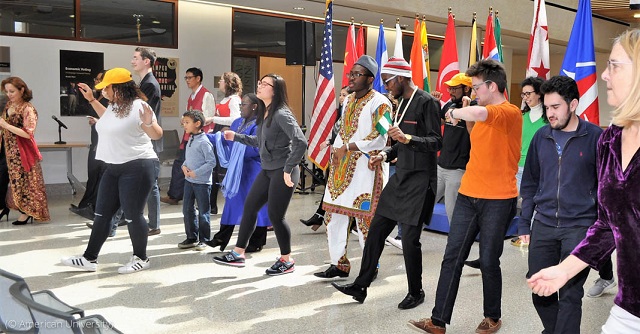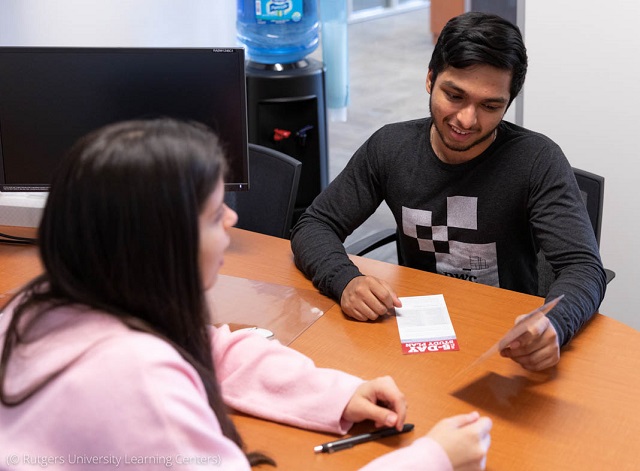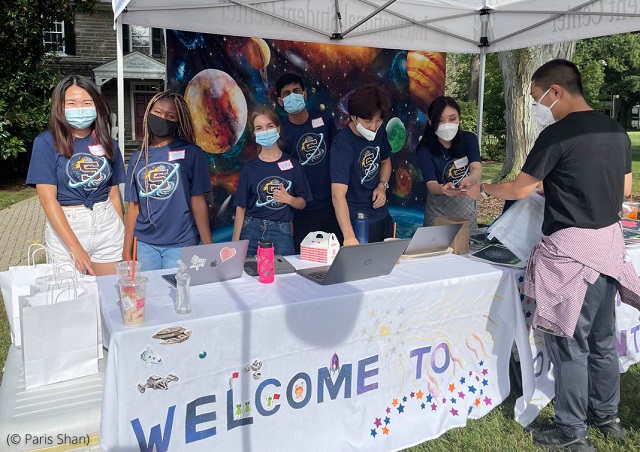The United States is the top destination for students who study overseas. International students come to the United States because of strong academics and institutional support at U.S. schools — and because of the value of a U.S. degree to graduates’ careers.
With many options to consider, international students often look for guidance from the U.S. Department of State’s EducationUSA network of international student advising centers in more than 175 countries and territories. The network offers information about opportunities to study at accredited U.S. colleges and universities and advisers who can guide students through the five steps to realize their dreams of studying in the United States.
Once they arrive in the U.S., international students find on-campus services and benefits at their fingertips. Here are some of the typical resources that help these students get the most from their college experience in the United States.
International student services
Many U.S. colleges and universities have offices that exist solely to help international students adapt to their new surroundings. At American University in Washington, it’s the International Student & Scholar Services office, directed by Senem Bakar. Her office, she says, steers students to available services, such as academic advisers for first-year students, a student health center, and specialized immigration services and support programs for international students transitioning to the American way of life.

American University students and staff dance at an International Student & Scholar Services cultural festival. (© American University)
Also, a career preparation program helps graduating international students navigate the U.S. job market or successfully re-enter their home cultures.
At Carnegie Mellon University in Pittsburgh, the Office of International Education emails enrolled international students weekly to tell them about events — such as film screenings, festivals or museum exhibitions — on campus and in the Pittsburgh area.
Tutoring
New Jersey’s Rutgers University, like many U.S. schools, offers tutoring to international students. Tutors are undergraduate and graduate students who have successfully completed training in teaching their peers, says Stacey Blackwell, senior director of Rutgers University’s Learning Centers.

A student meets with an academic coach at Rutgers University. (© Rutgers University Learning Centers)
Rutgers also offers academic coaching to improve test taking, study skills and time management, as well as other services through its English Language Institute, Writing Program and Writing Centers, and International Academic Success office. And international students at Rutgers have a chance to mentor their peers as well, Blackwell said.
Student organizations
U.S. college life offers something for everyone, in part because there’s an almost unlimited number of student organizations on any given campus. For example, Pennsylvania’s Swarthmore College has more than 100 student clubs and organizations geared to every type of interest or academic discipline.

Members of Swarthmore College’s i20 Club welcome international students as they arrive for orientation August 19. (© Paris Shan)
Paris Shan, a junior from Canada who studies political science at Swarthmore, is president of the school’s international students club (called the i20 Club). Before classes begin, the club holds a weeklong orientation for international students, she said, featuring social events and helpful tips.
The i20 Club also hosts monthly events “to celebrate our diverse cultures,” Shan said. In October, the club hosts its annual Fall Feast, “where international students can sign up to cook a dish from their home country to share.” Plus, the i20 Club co-hosts events with other student groups, helping international students integrate into the broader student population.
The relationships are likely to bear fruit over decades, as officials in the U.S. government understand. In fact, the U.S. departments of State and Education recently issued a Joint Statement of Principles in Support of International Education (PDF, 473KB), citing the importance of “the robust exchange of students, researchers, scholars, and educators” between the United States and other countries.
Find more information about opportunities to study in the U.S.
Banner image: International first-year students at Swarthmore College gather to reflect on their first month of college and write letters to their future selves to receive at graduation. (© Panhavoan Reth)







COMMENTS0
LEAVE A COMMENT
TOP